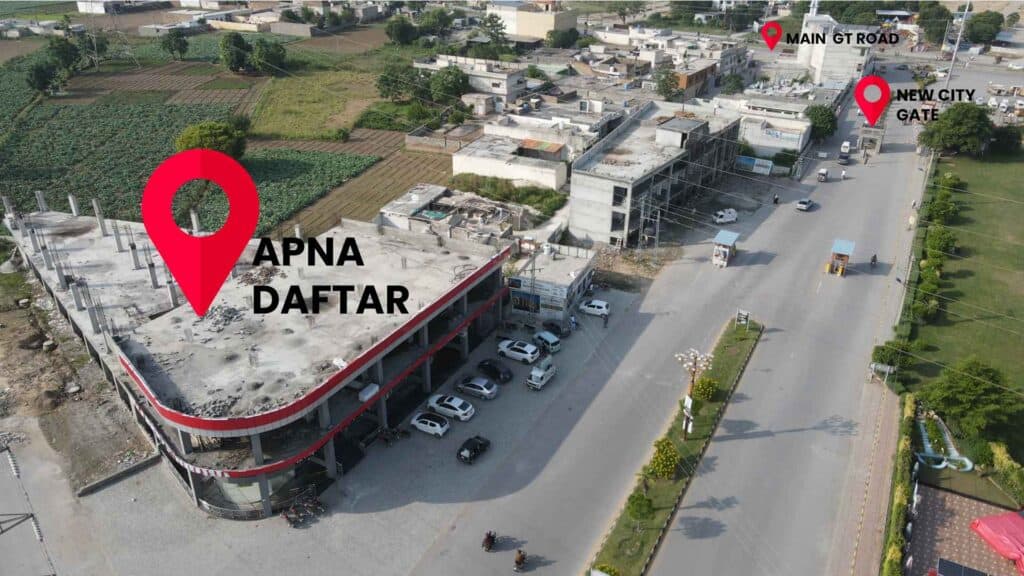Buying or selling property in Pakistan has always been a significant financial decision. But with the recent tax reforms introduced by the Federal Board of Revenue (FBR) for the fiscal year 2024-25, navigating the real estate market has become a little more complex—and for good reason. Let’s break it down so you can understand what’s changed, why it matters, and how it impacts you.
Table of Contents
ToggleWhat’s the Deal with Capital Gains Tax (CGT)?
Capital Gains Tax (CGT) is essentially a tax on the profit you make when selling immovable property. In simpler terms, if you sell a plot, house, or commercial space for more than what you paid for it, CGT applies to the difference—the profit.
Previously, CGT rates depended on how long you held the property before selling it (known as the “holding period”). For example:
- Properties held for less than a year were taxed at 15%.
- If held for over six years, the tax rate could drop to 0%2.
However, starting July 1, 2024, this holding period concept has been scrapped. Now, whether you sell your property after one month or ten years, the CGT rate is fixed:
This change aims to simplify tax calculations and encourage compliance. But let’s be honest—if you’re not a filer, those higher rates might sting a bit.
Advance Property Tax: What You Need to Know

Another key update involves Advance Property Tax (also known as Withholding Tax). This tax is applied at the time of buying or selling property and varies based on its value:
For Property Worth Up to Rs 50 Million
- Filers: 3%
- Non-Filers: A whopping 12%!
For Property Between Rs 50–100 Million
- Filers: 3.5%
- Non-Filers: 16%
For Property Over Rs 100 Million
- Filers: 4%
- Non-Filers: 20%1.
Non-filer sellers also face a flat rate of 10%, regardless of property value.
If you’re thinking about buying or selling high-value properties, these taxes can significantly impact your costs. So, becoming a filer isn’t just a good idea—it’s practically a necessity now.
Federal Excise Duty (FED): Another Layer of Cost

The Federal Excise Duty (FED) adds another layer of taxation to property transactions. For residential properties, this duty applies only to first-time owners. For both residential and commercial properties, FED is set at 5% of the transaction value1.
Why These Changes?
The government’s primary goal with these reforms is to increase transparency in Pakistan’s real estate sector. Historically, under-declaration of property values and non-compliance have been rampant. By standardizing taxes and removing loopholes like holding periods:
- The market becomes more regulated.
- Revenue collection improves.
- Buyers and sellers are incentivized to comply with tax laws12.
Who Is Affected?
Interestingly, FBR estimates that only 2.5% of property transactions—those involving high-value properties—will be heavily impacted by these amendments. Most transactions (97.5%) fall below Rs 10 million and remain relatively unaffected by these changes3.
However, if you’re dealing in luxury properties or large-scale investments, expect tighter scrutiny and higher costs.
How Does This Tie Into Real Estate Projects Like New City Phase 2 Wah Cantt?
If you’re looking for affordable commercial spaces or offices in Pakistan’s booming real estate sector, projects like Apna Daftar in New City Phase 2 Wah Cantt could be your saving grace amidst these tax hikes.

Located near GT Road and adjacent to the M-1 Motorway, Estate Mate offers:
- Affordable office spaces with modern amenities like free Wi-Fi and meeting rooms.
- Office boy services included—a rare convenience!
- Competitive prices compared to other commercial hubs in Rawalpindi-Islamabad4.
For small businesses or startups looking for cost-effective solutions without compromising quality, this project is worth considering.
Why Filing Taxes Makes Sense Now More Than Ever
Active Tax Payers Analysis
Visual representation of over 400,000 business taxpayers
Let’s face it—being a non-filer in Pakistan’s real estate market isn’t just inconvenient; it’s expensive. With non-filer tax rates soaring up to 45%, becoming a filer could save you thousands (if not millions) on transactions.
Plus:
- Filing taxes ensures compliance with FBR regulations.
- It keeps your financial records clean—important for securing loans or future investments.
- And let’s not forget—you’re contributing to national development!
What Should You Do Next?
If you’re planning to buy or sell property:
- Understand Your Tax Obligations: Whether it’s CGT, Advance Tax, or FED—know what applies to your transaction.
- File Your Taxes: If you’re not already on FBR’s Active Taxpayer List (ATL), now’s the time to register.
- Explore Affordable Options: Projects like New City Phase 2 Wah Cantt offer excellent opportunities for investment without breaking the bank.
- Consult Experts: Real estate agents and tax consultants can help you navigate these reforms efficiently.
Final Thoughts
The FBR’s revised tax policies may seem daunting at first glance—but they’re designed to create a fairer and more transparent real estate market in Pakistan. Whether you’re an investor eyeing high-value properties or someone looking for affordable office spaces like those in New City Wah, understanding these changes can help you make smarter decisions.
So ask yourself: Are you ready to embrace these reforms and make your next move in Pakistan’s real estate market?
